The 6th. General Assembly was opened with a warm welcome from the South African hosts, including the Chairperson of Masifundise, Mr. George Bongo. The WFFPs two co-coordinaters welcomed all delegates of the WFFP, the numerous observers from across the world and the strong presence of leaders of the fisher movement Coastal Links South Africa. Apologies were given for the late arrivals of two WFFP members due to problems obtaining Visas, and two additional members who had to address urgent matters in their home countries due to severe infringements on the human rights of fishers.
Ms. Maria Hoffman from Pearly Beach, South Africa, co-founder of Coastal Links, gave a strong opening speech which underlined the victory of securing the endorsement of a national small-scale fisheries policy. Ms. Hoffman also stressed that unless the policy is implemented, the future of the young generation would not be secured, and that Coastal Links have to continue lobbying government to implement the policy and ensure collective access rights.
The key note address was given by associate professor, Seth Macinko, from University of Rhode Island, USA. Mr. Macinko explained how powerful institutions, such as the World Bank, are manoeuvring and strategising in order to pursue their agenda of privatising fish resources world wide. He stressed that the WFFP should be aware of the tactics of the proponents of privatisation policies – tactics of adapting their language to the language of the WFFP. As an example, he referred to documents showing that the World Bank has moved from speaking directly about privatisation of fish resources (through individual quota systems) to now speaking of ‘tenure rights’ in line with The Voluntary Guidelines on the Responsible Governance of Tenure of Land, Fisheries and Forests endorsed by the FAO in 2012.
The opening was continued by a tribute to Thomas Kocherry, a pioneer of the WFFP who passed away on the 2nd May 2014. Thomas, a priest and activist from Kerala, India, was a hardened soldier in the fight for the rights of fishers and poor people. For the WFFP, the legacy of Thomas Kocherry will continue to stand tall.
After a short break, the each of the WFFP members spoke about the issues and challenges they are facing in their home countries. Many important means and strategies for improving the situation for the fisher peoples were brought to the fore and important victories were underlined.
The most pronounced challenge to small-scale fishers that was addressed, was the ‘privatisation‘ of fisheries. This privatisation takes many forms and while the privatisation of fish stocks – or fishing quotas – was the most frequently cited threat, it also became clear that privatisation also refers to the grabbing of land for tourism development or aquaculture and privatisation of other resources including land and infrastructure. It was clear from the members feedback, that privatisation is closely related to others issues, which were highlighted numerous times. One of these issues were access rights, which should be understood as fisher peoples rights to access natural resources. It was explained how many groups of fishers all over the world have lost their access rights because of the nature of legal frameworks – laws and policies – that work against the interest of fisher peoples.
Other members expressed sincere concern about the lack of inclusion of small-scale fishers in decision making processes. It became clear that the political marginalisation of social movements and fisher peoples is one of the root causes for people suffering form being displaced or dispossessed from their traditional and cultural identity and livelihoods. As one delegate expressed, “fishers suffer from hunger and poverty, they have become the marginalised of the marginalised”. In some cases, fishers have also become criminalised because of the laws and regulations imposed upon them, yet the only alternative to practise their traditional fishing is to die from starvation.
Several delegates also underlined the positive changes in governments’ attitudes towards the small-scale fisheries sector. As a result of strong advocacy efforts by the WFFP members, some governments have changed laws, policies and management plans in favour of the small-scale sector. One important victory has been claimed in East Africa where three nations have established ministries specifically for fisheries, and due to this, fisheries in these countries are no longer regarded as a sub-sector to agriculture.
While these were some of the most frequently mentioned issues, the delegates also spoke at length about the tactics and strategies applied in pursuit of the rights of small-scale fishers. A key observation is that the WFFP members apply multiple strategies in order to maximise impacts.
Most WFFP members work extensively with lobbying and advocacy directed at the decision makers in their country – both from the local, to the national level. Experiences from the members show that this is an effective means to influence laws, polices and management plans. In a couple of cases, the fisher peoples have themselves drafted policies and management plans and tabled these at decision making fora. It became clear that co-management is a key issue, and in some cases the existing ‘co-management’ systems are in fact top down governmental controlled systems and that members work to change this approach to a bottom-up approach where the local or traditional knowledge of fishers is integrated.
In almost every piece of feed back from the members, unity, solidarity and building networks and alliances with other movements (fishers or non-fishers) was highlighted as key to the struggle. Even though it was not explicitly articulated in words, it became very clear that cultural strategies are also used. Several sessions involved songs about the struggle for fishers rights – songs the fishers are singing when mobilising and protesting. This affirms the strong focus on cultural strategies in building solidarity and unity.
Another important strategy that was mentioned repeatedly, was the empowerment of the grass roots. In some cases this was articulated in the forms of capacity building and training of leaders, awareness raising and information sharing. The central element here is that the political consciousness and ability to take action is enhanced through these empowering processes.
A most important lesson from the members feedback is that these strategies, when applied in combination, bear fruit. Some of the most promising and significant examples include the changes of laws, policies and management plans in favour of small-scale fisheries and as a result of inclusion of small-scale fishers in decision making processes. There were other important examples of how processes of developing new legislation – in favour of the corporate sector and multinational companies and at the expense of small-scale fisheries – have been blocked by the work of WFFP members. In some cases, litigation has been applied as a tool for both developing new policies in favour of small-scale fisheries and blocking the endorsement of policies that will negatively affect small-scale fishing communities.
The team of rapporteurs concluded that whilst it is clear that whilst there is a long struggle ahead of us, we heard of cases where promising policy frameworks are already in place, yet fishing communities are still suffering from poverty and food-insecurity. There will always be battles to be fought. Even if all the social, human, political, cultural and economic rights are fulfilled, we can be ensured that there will be other forces working against us. Big corporations, for example, will continue to pursue new profits at the expense of others, and hence, the struggle continues.

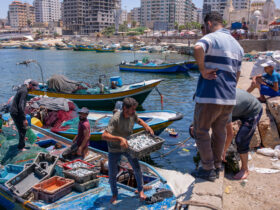

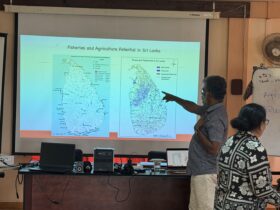
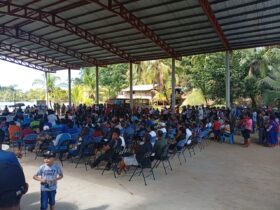
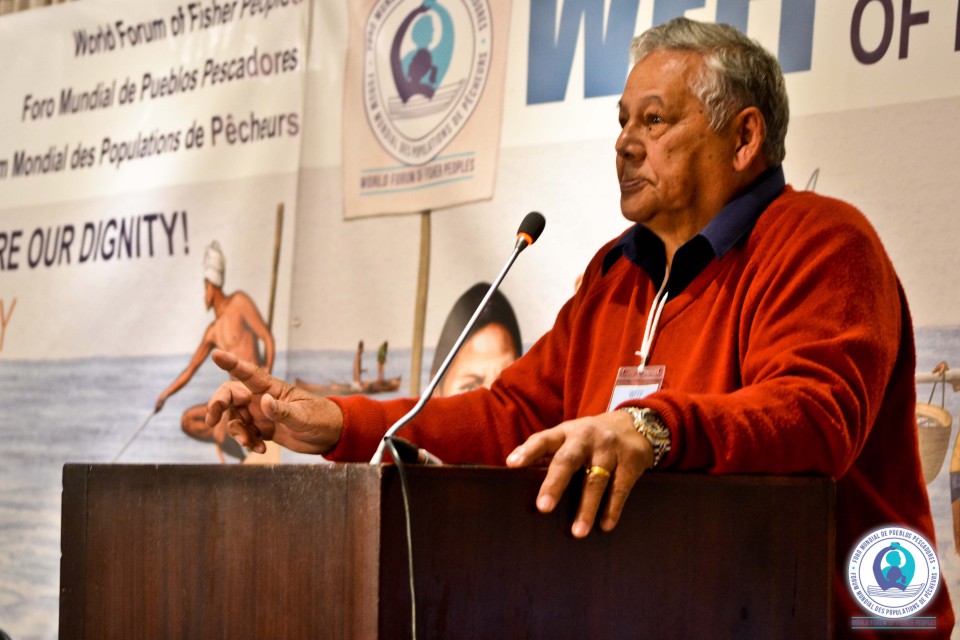
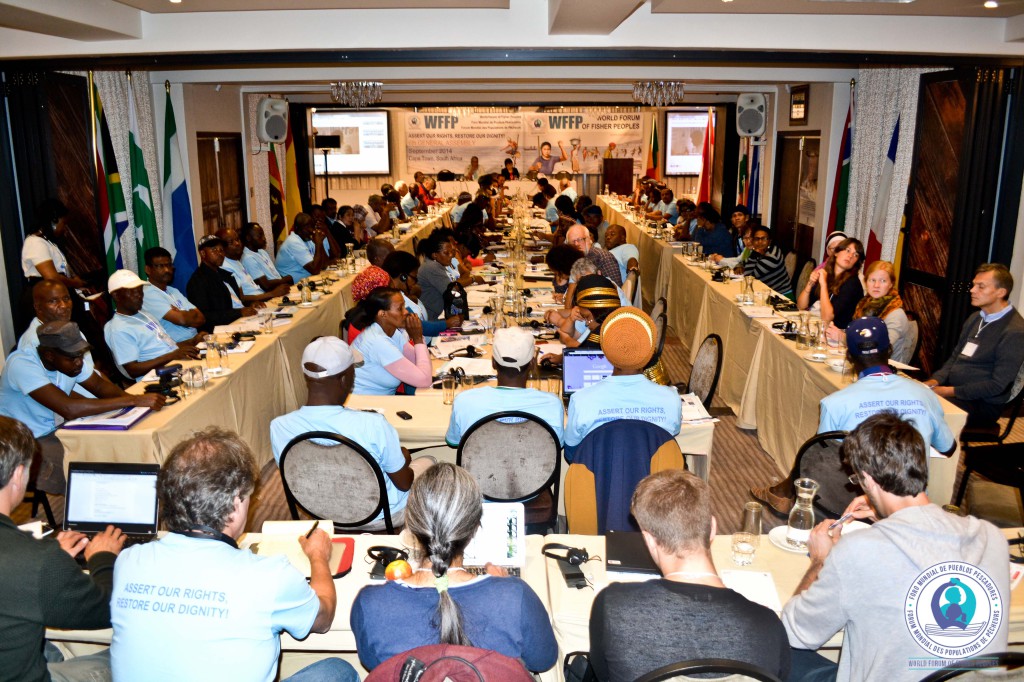
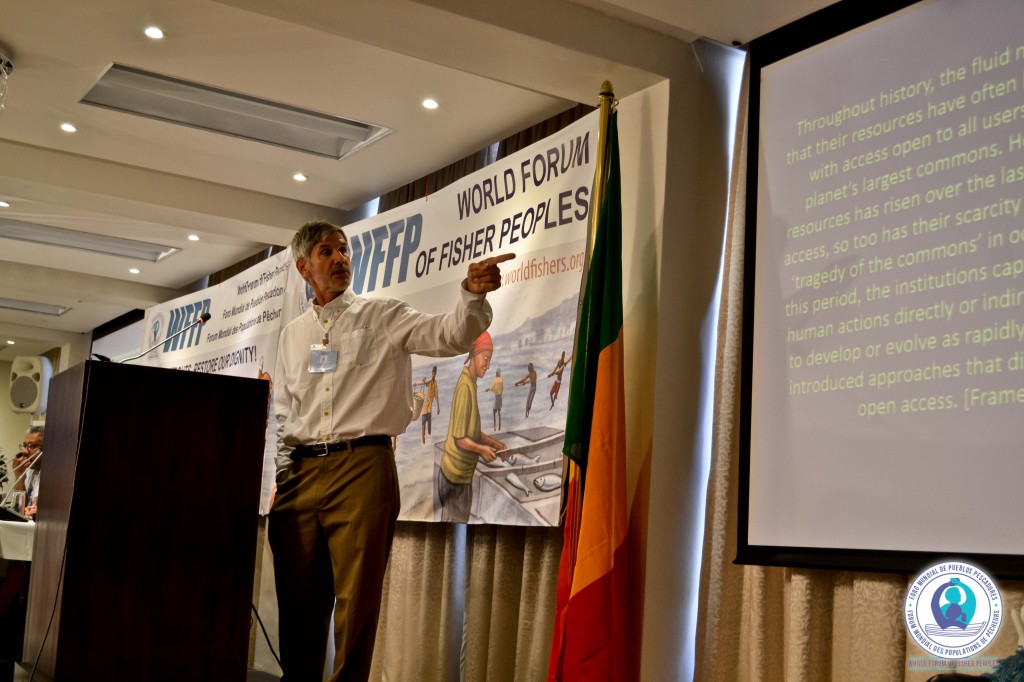
Leave a Reply